
We all know that dental health habits are important at any age, but as we grow older, we may face more oral health concerns than we did in our earlier years. This is why it’s important to establish and maintain great dental hygiene routines and to foster a relationship with a great dentist to help meet dental challenges as they come.
What happens to our teeth as we get older? The fact of the matter is, as our bodies age, we sometimes find ourselves dealing with ailments that were not a problem in our youth. This can apply to our teeth and gums as well. Most of these dental problems that can arise in seniors are easy to identify, resolve, and even prevent when you know what signs and symptoms to be on the lookout for. Here are a few things to be aware of when it comes to senior oral health.
Attrition simply means wear and tear, something your teeth see a lot of over the years as they help you chew your food, speak, and function normally. Years of use, eating, grinding, and general aging can take their toll on your teeth. Also as your healthy tooth enamel wears down over time, they leave your teeth more susceptible to decay and cavities.
Aging in and of itself does not necessarily make the symptoms of dry mouth more likely; however, certain factors that come along with it can, such as chronic conditions, medications you may take, and so on. If you are experiencing dry mouth, it can be indicative of issues you’ll need to address with your dentist.
Gum disease happens to be one of the leading causes of tooth loss in adults. Also referred to as periodontal disease, this dental issue is caused by plaque forming on the teeth, and being left untreated. Gum disease symptoms include red, puffy, or bleeding gums, consistently bad breath, pain, and tooth sensitivity, all of which can be prevented by diligent oral care. Gum disease is also reversible when detected and treated early.
Some also find that tooth sensitivity is more of an issue as they age. Gums naturally recede over time, and that can leave areas of tooth exposed that are not well-protected by enamel. Sometimes sensitivity can be an indication of a bigger problem such as a cavity or a cracked or fractured tooth.
Often as a result of gum disease, the roots of your teeth can become exposed as gums recede over time. This can cause tooth decay to develop at an increased rate, which can then lead to a whole host of other dental problems that will require the attention of your dentist.

Of course, maintaining oral health for seniors looks a lot like it does for folks at any age, and keeping your teeth and gums in prime condition just takes a little bit of effort. Combat dental problems that can become more likely with age through the following practices:
Our team at Tedford Family Dentistry is here to support families in their oral health regardless of age. We offer preventative dental care for children, adults, and senior adults, and we want to help you achieve your greatest possible oral health at every age! Contact our team to schedule an exam or cleaning, or to address any dental issues you may be experiencing.
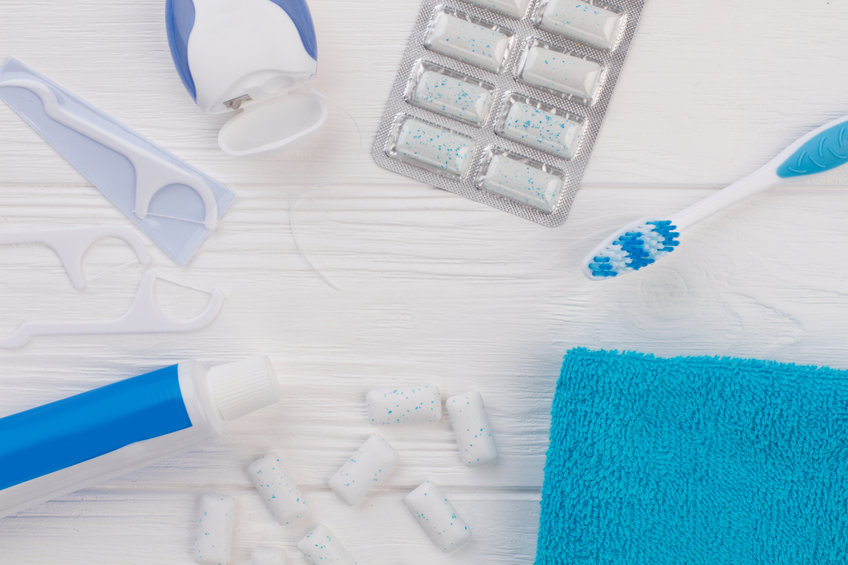
When it comes to oral health, it’s about so much more than just teeth. Your gums play a critical role in maintaining a healthy mouth, and even in ensuring your teeth remain healthy and strong. Even if your teeth are cavity free and aesthetically beautiful, that doesn’t mean you are immune to gum disease. Gum disease can oftentimes be completely painless, and therefore difficult to detect.
Gum disease affects 47.2% of adults ages 30 and up, according to the CDC. It begins with plaque that builds up under and along the gum line, and can cause infections that hurt the gum and bone, leading to tooth decay and other issues. The presence of plaque can also cause gingivitis, the earliest stage of gum disease. Gingivitis can cause your gums to become red, tender, swollen, and inflamed, and can cause bleeding as well. As unpleasant as that sounds, the upside is that this damage is completely reversible.
Periodontitis, however, is a more advanced stage of gum disease, and can impact the bones that hold your teeth in place within the mouth. If left untreated, this can be the ruin of gums, bones, and tissues inside the mouth. The final and most serious stage of gum disease is advanced periodontitis, and in this phase, the fibers and bone supporting your teeth are destroyed. This can result in issues with your bite as well as tooth loss.
Per the American Dental Association (the ADA), signs that you may have gum disease include:
Consistently bad breath A consistently bad taste in your mouth Separating or loose permanent teeth Gums that easily bleed Gums that are red, swollen, or tender Gums that have pulled away from your teeth
A positive thing to note here is that gum disease is completely preventable, and here are a few tips for healthy gums that will help you evade these problems when it comes you your own oral health.
1– FLOSS ‘EM
Just do it, ok? Floss your teeth at least once per day to help remove plaque and food particles that are beyond the reach of your toothbrush. It doesn’t really matter that much when you do it, just do it!
2– BRUSH TWICE A DAY
Brush at least twice a day, or even better yet, after every meal. Brushing your teeth removes food bits and plaque that can build up on your teeth and gums. You’ll also want to brush your tongue, which can be a hotspot for all sorts of problem-causing bacteria (and stinky breath). Your toothbrush should ideally have soft bristles and fit comfortably in your mouth.
3– FLUORIDE OR DIE
Let your fluoride toothpaste be your oral health ride or die. Your toothpaste aisle might have you a little overwhelmed with options, but no matter what you do, be sure to choose a toothpaste that contains fluoride and has the ADA seal of acceptance. Type, flavor, brand is all completely your call.
4– SWISH N’ SPIT
The next tip for healthy gums is to use an over the counter therapeutic mouthwash. This can help reduce plaque, prevent gingivitis, and reduce the speed at which tartar develops in the mouth. More than that, the actual act of swishing and rinsing helps to loosen and remove food particles and debris that can take up residence in the mouth. Just remember mouthwash is not a suitable alternative to regular brushing and flossing, but an additional step that can do a lot of good!
5– DON’T SMOKE
Smoking is one of the worst things you can do for your gums. Smoking is strongly associated with the development of gum disease, and even makes it harder to fight off gum infections by weakening your immune system, according to the CDC. Smoking also makes it harder for your gums to heal after facing damage.
6– MAKE YOUR DENTIST YOUR BFF
The final tip for healthy gums is to prioritize dental cleanings and exams. Your dentist can help diagnose any issues that arise early, and help ensure you get the treatments necessary for maintaining your overall oral health. Professional dental cleanings are also necessary for removing tartar build up on the teeth and along the gumline, which can cause problems if left untreated.
If it’s time for a dental check up, contact our team at Tedford Family Dentistry today, and we’ll get you taken care of. In the meantime, make your oral health a priority with these tips for healthy gums. We assure you, you won’t regret the extra effort!

Dental accidents can occur anytime, anywhere, and parents need to be prepared for these unforeseen situations so they can react quickly and appropriately. Knowing what to do when faced with a children’s dental emergency can mean the difference between your child losing a tooth forever or saving that permanent tooth by taking the right actions immediately. No matter what the dental emergency is, it’s imperative that you take your child to the dentist or the closest emergency room as soon as possible.
If your child cracks a tooth, rinse the mouth out with warm water to cleanse the area, and put a cold compress on the face to help reduce pain and swelling. See the dentist as soon as possible for the next steps.
First of all, make sure your child doesn’t have a more serious injury in addition to the knocked-out tooth—it’s important to assess the entire situation. For a knocked-out permanent tooth, it’s important to keep it moist at all times. Ideally, place the tooth in a container of milk, or use a tooth preservation product marked by the ADA’s Seal of Acceptance. Then, get to the dentist’s office as soon as possible. A primary tooth, or baby tooth, does not need to be placed in milk, but should still be brought to the dentist if possible.
If your child accidentally bites his tongue or lip, clean the area gently with water, then apply a cold compress. Contact your dentist or primary care doctor to determine how severe the bite is. If the bite is severe, go to the emergency room as soon as possible.
For toothaches in children, rinse the mouth with warm water to clean the area. Gently floss the area to remove any debris that could be causing the pain. If the pain persists, visit your pediatric dentist ASAP.
If your child has something caught between his or her teeth, first try to remove it gently with dental floss. Don’t ever use metal, plastic, or any other sharp tool to attempt to remove a stuck object between teeth, as this can cause more damage. If you are unable to remove the object, contact your dentist immediately.
First, rinse the mouth with warm water, then use a cold compress on the area to reduce swelling. Try your best to find the broken-off piece of tooth, and then contact your dentist immediately.
If you believe your child’s jaw may be broken or fractured, it’s important to exercise caution. VERY gently apply a cold compress to help control swelling and pain, and get to your dentist or ER immediately. Try your best to stabilize the jaw to keep it from moving.
Our team at Tedford Family Dentistry is equipped to handle your children’s dental emergencies. Contact us if you need assistance, and if it’s after hours, be sure to contact our emergency line or go to the nearest emergency room for immediate care.

If you’re toothpaste shopping at your local store or supermarket, you’ll probably find yourself presented with an almost overwhelming number of choices. Rows and rows of boxes of toothpaste from different brands, with different claims– tartar control, whitening, sensitivity, fresh breath. So how do you choose the best toothpaste for you? We’ve got a few tips to help you narrow down your choices, and of course, your dentist at Tedford Family Dentistry is always happy to answer any questions about choosing the right oral care products.
First ask yourself some helpful questions about your teeth and gums. Do you have sensitive teeth? Are you looking for whitening help? Do you need extra tartar protection? Do you have gingivitis or any other gum disease? Are you looking for a toothpaste that will appeal to your kids? No matter what the situation, there are a few things you’ll want to consider before purchasing a toothpaste.
Step one is going to be to check for that ADA stamp of approval on the toothpaste you’re considering. To earn this seal, toothpastes must meet the ADA’s Council on Scientific Affairs requirements for safety and efficacy in reducing tooth decay. Essentially, you know the toothpaste will be safe and effective at cleaning your teeth so long as it has been ADA approved.
It’s imperative that the toothpaste you choose contains fluoride. This natural mineral fights cavities and protects your enamel, or the outermost layer of the teeth. According to the ADA, “Fluoride strengthens teeth to help prevent tooth decay and remineralizes tooth enamel in the early stages of tooth decay.” The fluoride in your toothpaste can strengthen weakened and compromised teeth, and serve as a preventative defense against future dental problems.
Some toothpaste options contain ingredients that can be potentially harmful to teeth and their delicate enamel. Again, the ADA approval seal will ensure your chosen toothpaste is effective and safe to use, so that’s the first line of defense against toothpastes with potentially abrasive ingredients to steer clear of. For example, a relatively newer trend in dental care involves the use of products that contain activated charcoal. If used regularly, charcoal can be rather abrasive, and could potentially damage tooth enamel or even contribute to increased tooth sensitivity in the long term. Though activated charcoal does have some proven health benefits, there isn’t enough solid scientific evidence to prove dental whitening is among them. Furthermore, charcoal dental products generally don’t contain fluoride, which, as we’ve established, is critical for proper oral care.
If you have any questions or concerns about the dental products you’re using or how to choose the best toothpaste for you, discuss your situation with your Chattanooga Tedford dentist at your next visit. If you need to schedule an appointment, cleaning, or exam, contact our team today!
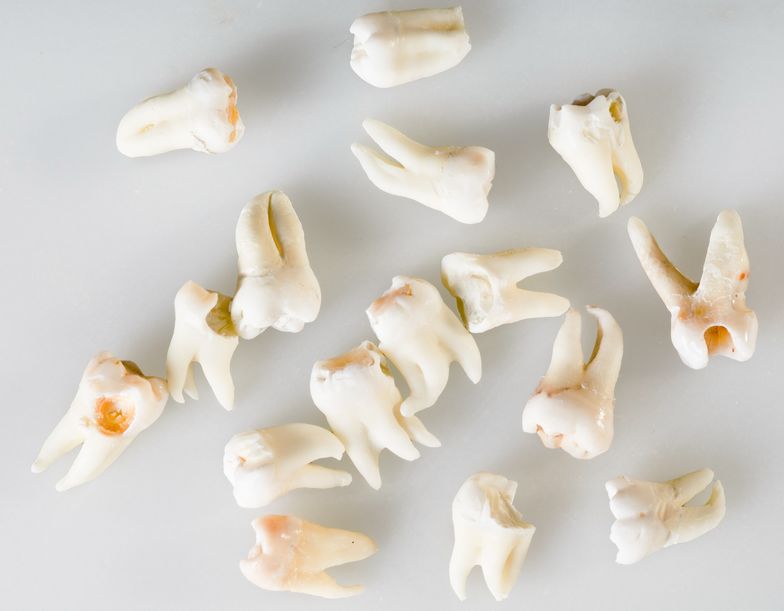
At Tedford Family Dentistry, we think teeth are fascinating. Of course, not everyone shares our level of enthusiasm for all things dental health; however, we think you’ll find these strange and interesting facts about teeth to be rather entertaining. We hope, too, to inspire you to work toward greater dental health by furthering your knowledge about teeth. So here are 10 things you didn’t know about teeth to galvanize your personal dental health journey.
A common misconception, teeth are actually not bones. Though they are hard and white, they are made up of different materials than your bones are. Bones can heal themselves over a long period of time, while teeth do not have this ability to recover from stresses.
An important tool in forensics, teeth are just as unique as fingerprints, if not even moreso. The way your teeth are arranged inside your mouth is unique to you and you alone. Every human has their own bite that cannot be replicated by anyone else. Even if you’ve worn braces!
8 incisors, or your front teeth, 4 canine teeth, 8 premolars, and 12 molars– that is the set up most people are working with, landing at 32 total teeth. That said, every mouth is different. Some people are missing certain teeth genetically, and others have lost some due to various circumstances.
Wildly enough, braces have been a part of human dental history for an incredibly long time. Archeologists have even discovered Egyptian mummies with simpler versions of braces on their teeth. The first documented braces, however, were designed in 1728.
Plaque actually contains millions of types of bacteria, made up of more than 300 different species. The main cause of dental health problems is Streptococcus mutans, which is a bacteria that converts carbs and sugar into an acid in your mouth that eats away at healthy tooth enamel.
Your body produces saliva constantly, about a quart every day, which averages out to be about 10,000 gallons over a lifetime. That is enough saliva to fill two swimming pools! That saliva generated serves important functions in overall health. It makes food easier to swallow by helping to break it down as you chew, contains enzymes that aid in digestion, and washes lingering food particles away from your teeth. It also contains calcium and phosphate, which help to neutralize the acids in plaque that cause tooth decay.
Enamel is the outermost layer of your teeth, and like a hard shell, it exists to protect the rest of the tooth. Made mostly of calcium and phosphate, the enamel is like bones, only stronger as it is formed from specific proteins and crystallites.
What? Yes, it’s true. Cheese is good for your teeth! Eating cheese can actually help protect your teeth by creating a layer over them that wards off the effects of acids and plaque. Cheese also has high levels of calcium and phosphate, which also work to strengthen your teeth from the inside out. Another fun fact is that cheese actually helps to balance the pH level inside your mouth resulting in less acidic saliva, and consequently fewer cavities. As if we needed more reasons to love cheese!
Teeth are similar to icebergs in that about a third of them is underneath the gum line. So there’s a lot more to your teeth than meets the eye. This is why it’s extremely important to take great care of your gums and keep them healthy. Healthy gums are firm and pink in color.
Though dental care has evolved dramatically over the years, people have actually been using toothpaste to clean their teeth since roughly 500 B.C. In that time, the ancient Greeks used a mixture of iron rust and coral powder to clean their teeth, though the toothbrush-type instruments used were made of twigs.
Dental health is paramount to overall physical wellbeing, and the more you know and understand about teeth and gums, and how to keep them healthy, the better success you will have. Our team at Tedford Family Dentistry hopes you’re inspired by these strange and fun facts about teeth and oral care, and that you’ll come see our staff for preventative cleanings and exams, as well as with any issues that may arise with your teeth. Visit our Ooltewah family dentistry office today!
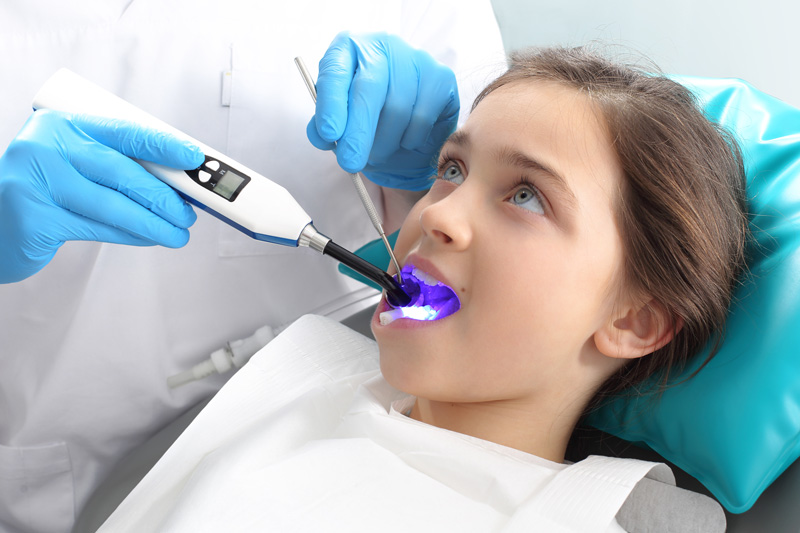
The staff at Tedford Family Dentistry in Ooltewah, TN always stresses the importance of taking care of your teeth. Regular brushing and flossing, avoiding sugary food and drinks, and consistent cleanings and dental exams are all crucial in maintaining a healthy mouth. When we slack on these things, the effects can often be painful and extremely costly to rectify. Filling cavities, getting root canals and needing crowns are things we all want to avoid. But in addition to proper cleaning, dental sealants are a great way to help keep tooth decay at bay.
Molars can be rough and craggy, with lots of tight nooks and crannies for food particles and bacteria to hide. This is where sealants come in! You can actually safeguard your child’s molars with these thin, protective coatings that can actually keep cavities from forming, as well as keep minor tooth decay from progressing into full-blown cavities that require fillings.
According to the Centers for Disease Control and Prevention, dental sealants prevent 80% of cavities in back teeth or molars, where 9 out of 10 cavities occur. The CDC also reports school-aged children without sealants have almost three times more cavities than children who do have sealants.
Sealants are basically like armor for your teeth. After application, the sealants keep bits of food, germs, and bacteria (the recipe for cavity-making) from settling on the surfaces of the teeth, just like a shield would protect you in battle.
Your dentist can quickly and easily apply sealants to adult and baby teeth in both adults and children. It’s a completely painless and non-invasive process. Your dentist will first clean and dry the surface of the tooth then place on it an acidic gel. The gel acts as a bonding agent for the sealant by creating a rougher surface for it to grab onto. After applying this gel and allowing it to set, your dentist will simply rinse it off, apply the sealant material, then harden or set it with a special instrument called a dental curing light (also used for fillings, etc).
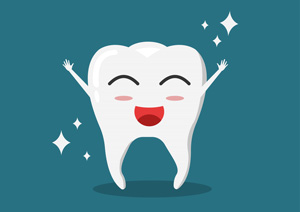
Many dental insurance plans cover the cost of sealants. If you’re not sure about your coverage, call your provider to check in about it. Covered or not, sealants should be part of every parent’s low cost dental care regimen, as they can prevent cavities and other dental problems that are extremely costly to address. As purveyors of great dental care from pediatric dentistry all the way through adulthood, the staff Tedford Family Dental recommends all children have sealants applied to their teeth. Preventative is always the best approach when it comes to a healthy mouth.
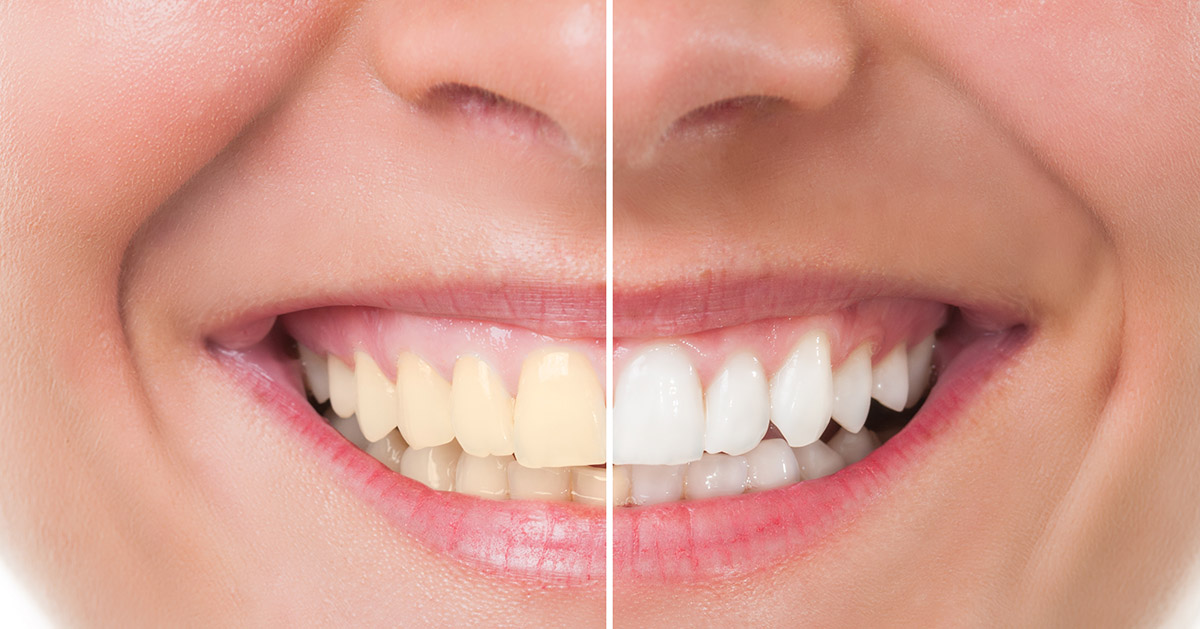
There are a few different things you can do to keep your natural smile looking it’s best. You’ve no doubt heard the expression “You are what you eat…”
Turns out, this is true, at least when it comes to the coloration of your teeth.
Because your teeth are porous, they naturally absorb the liquids that you drink. Avoid consumption of or exposure to products that are known to stain teeth, such as coffee, tea, sodas, grape or cranberry juice, popsicles, soy sauce, balsamic vinegar, tomato sauce, fruits and berries (blueberries, blackberries, cherries, pomegranates, etc.), and beets.
Making some adjustments can minimize the impact of these foods and beverages, including swishing your mouth with water after eating or drinking something (or, if practical, brushing and rinsing immediately after consuming), adding milk to coffee to lighten it’s color, choosing green tea over black tea, choosing light-colored sodas, drinking apple juice instead of grape or cranberry juice, avoiding popsicles with dark coloring, switching to light-colored or creamy sauces over deeply colored sauces, adding a lighter vinegar to salads, and adding greens like lettuce and broccoli that create a film on your teeth to prevent staining from occurring. You can also use a straw so the liquid from beverages that stain bypasses your front teeth.
Foods like beets are packed with good nutrients, but they stain everything they touch. You don’t need to skip foods high in antioxidants and vitamins that your body needs just to avoid staining teeth. Research suggests that gum disease accelerates and is potentially more severe in people with poor nutrition.
You DO want to consider eliminating sodas because of the artificial sugar and acid, which are terrible for the enamel on your teeth. Foods high in carbohydrates, sugars, and starches greatly contribute to the production of plaque acids that attack the tooth enamel. “Energy drinks” can erode enamel, so drinking water during workouts is a better alternative.
The color of a drink does not always dictate the full extent to which it can stain teeth. The dark, rich color of red wine makes it an obvious culprit, but white wine actually contains more damaging acid.
We recommend brushing your teeth at least twice daily and flossing at least once daily. Use a whitening toothpaste once a week only to remove surface stains, using your regular toothpaste the rest of the time.
Whitening may be more effective on yellowish teeth than brownish-colored teeth. Grayish-hue or purple-stained teeth present the biggest challenge. Blue-gray staining can require months of treatments. In some cases, veneers, bonding, or crowns may present a better choice than bleaching. It’s also important to note that teeth whitening is not permanent as patients may expose their brightened teeth to the same foods and beverages that stained their teeth in the first place. A touch-up treatment in 6 months or after a year or two may be needed.
Certainly! Tedford Family Dentistry helps our patients restore their gorgeous smiles with procedures such as teeth whitening, dental implants, dental veneers, cosmetic fillings, and contouring the shape of teeth.
Our professionally applied products meet ADA guidelines for safety and effectiveness. The first step to ensuring safe and effective us is a professional consultation. Call us at (423) 238-8887 to arrange a cosmetic dental appointment at our office at 9380 Bradmore Lane, Suite 108, Ooltewah TN 37363.
Photo: © Catalin205 / 123RF Stock Photo
Blog © 2019 Tedford Family Dentistry: Tedford Keith DDS | Ooltewah TN 37363
Gingivitis causes redness of the gingiva, or the gum line that meets the base of your teeth. It typically causes inflammation, making gums appear puffy. Gingivitis also causes bleeding gums more often during brushing or flossing, with bad breath as a common symptom as well.
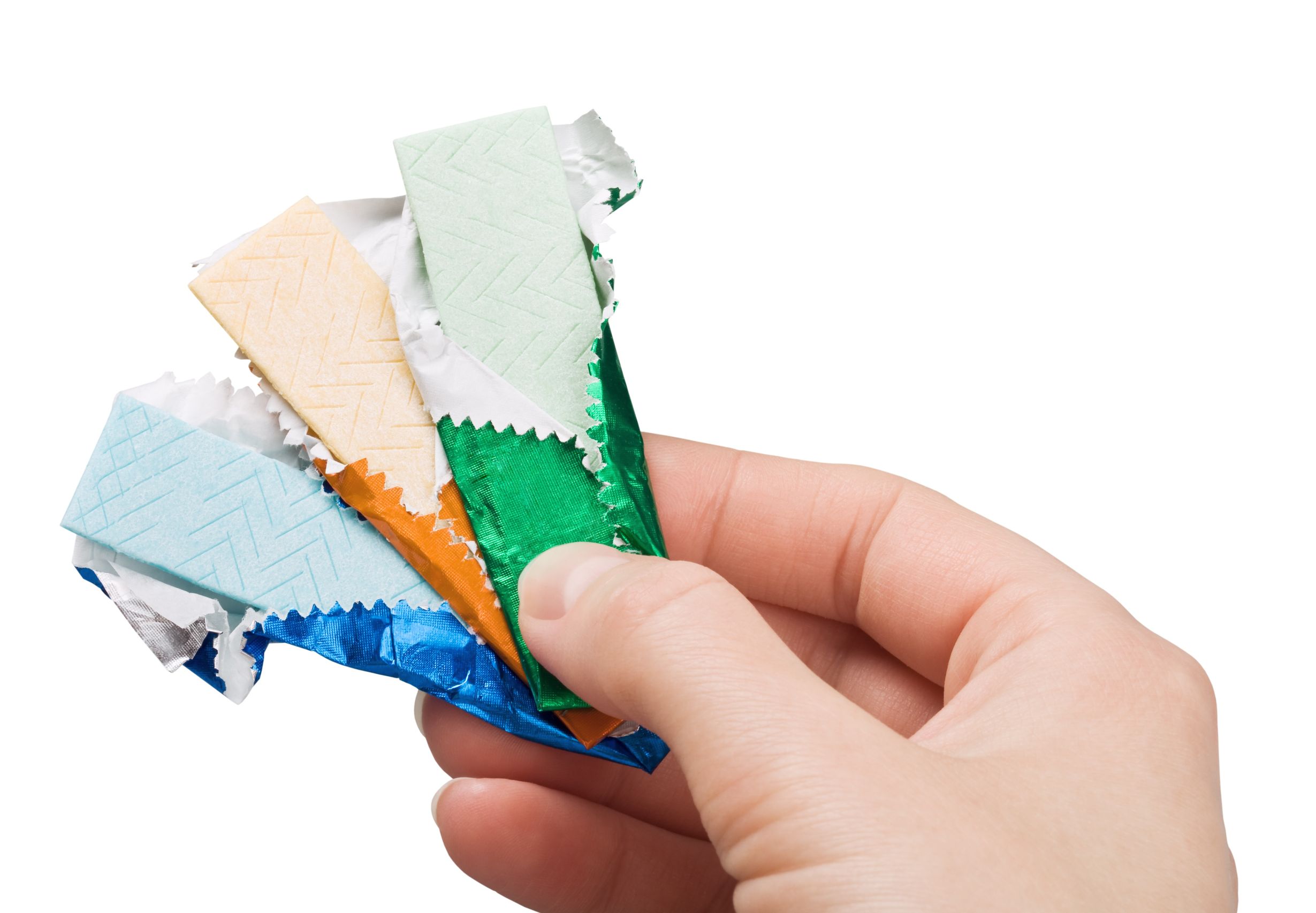 According to a 2015 study, 100 million bacteria can be removed from the mouth after 10 minutes of chewing sugar free gum. There are more benefits to chewing gum than just minty fresh breath. It can help various other aspects while you chew:
According to a 2015 study, 100 million bacteria can be removed from the mouth after 10 minutes of chewing sugar free gum. There are more benefits to chewing gum than just minty fresh breath. It can help various other aspects while you chew:Our seniors are precious and need special consideration to remain healthy. Dr. Tedford works to provide affordable senior dental services like dentures, implants, bridges, and more to the Ooltewah, Chattanooga, Collegedale, and Cleveland, TN communities. In fact, we have a dedicated page on this website to specifically address senior citizen dental care needs.
Readers can learn more about minimizing root decay that can lead to age-related gum loss and tooth loss. Lost Bone mass can also harm the jaw and increase the need for dental implants. Wear and tear related to time also impacts how well dentures fit. Decades of exposure to coffee, wine, and sodas show erosion of the dental enamel. Dr. Tedford assists seniors with routine dental care and cleanings, implants, dentures, veneers, bridges, and teeth whitening.
It’s important that our retirement years be spent comfortably, which includes retaining our ability to chew food correctly and without pain to nourish the body. Poor dental health can lead to problematic infections, according to experts at the University of Rochester Medical Center. Brushing teeth twice daily, flossing, and going for regular dentist checkups are recommended as part of a Consumer Reports Health Checklist for Seniors.
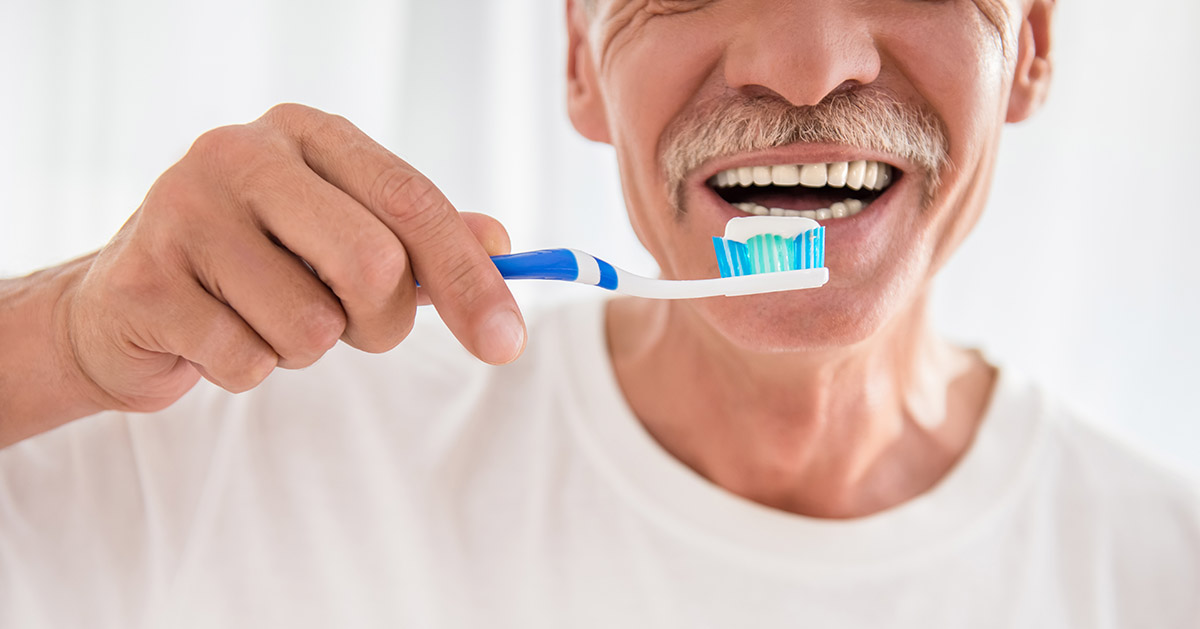 It makes perfect sense that our teeth and gums require extra attention as we get older, the same as other health conditions complicated by age. Some of the unique situations affecting seniors:
It makes perfect sense that our teeth and gums require extra attention as we get older, the same as other health conditions complicated by age. Some of the unique situations affecting seniors:
And just because someone is of advanced age, that doesn’t mean we never see patients wishing to correct crooked teeth by getting fitted with braces or have teeth whitened. If someone has been sensitive about his or her smile for most of their life and now have the discretionary income to do it, why not?
Special care is needed when treating dementia patients who suffer from jaw, tooth and gum pain. It’s also a good idea to prepare a list before an appointment to tell Dr. Tedford during visits about all drugs taken by seniors, the dosage and how often these medications are taken. Such information can affect the recommended Senior Dental treatment plan.
Seniors are the primary consumers of dental products like dentures, bridges, and dental implants. The latter can be a great option following tooth loss, but the patient needs healthy enough gums and bone to hold an implant in place. Bone density loss is a significant concern for women age 65 and older in particular. Discuss this Dr. Tedford during the initial consultation before such a dental procedure happens.
Access to regular dental care is often difficult for seniors. Medicare doesn’t cover it, and Medicaid coverage is limited. Out-of-pocket expenses can be prohibitive to those on a fixed income. Most seniors must rely on either Medicare Advantage plans or private insurance to get coverage, but there are options.
Programs of All-inclusive Care for the Elderly (PACE) is a Medicare and Medicaid program that allows people 55 or older who otherwise need a nursing home level of care to remain in the community, covering dentistry, x-ray services, and other services. There are two PACE organization plans in Tennessee, both through Alexian Brothers Community Services.
The Senior Dental Care insurance program is available to most Medicaid recipients at no additional cost. Veterans may be eligible for dental benefits provided through the Department of Veterans Affairs (VA). Ask us about payment options such as payment plans and reduced prices based on need.
Dr. Tedford wants to help seniors keep their natural teeth longer and maintain good oral health so they can smile through their golden years. Call us at (423) 238-8887 or make an appointment to visit our office at 9380 Bradmore Lane, Suite 108, Ooltewah TN 37363.
Photo: © Vadim Gozhda / 123RF Stock Photo
Blog © 2018 Tedford Family Dentistry: Tedford Keith DDS Ooltewah TN 37363
 Below are some simple, general tips from our Ooltewah dentist to keep your dentures, either complete or partial dentures, in good shape.
Below are some simple, general tips from our Ooltewah dentist to keep your dentures, either complete or partial dentures, in good shape.Confidence is everything, and our cosmetic dentistry staff near McDonald Tennessee has the skills to get you feeling confident about your smile! We take special care to ensure your teeth are aligned properly and have multiple opportunities to help you achieve cleaner-looking bites all around. Some examples of options we provide include:
Teeth Whitening Near McDonald Tennessee
The appearance of your teeth is dependent on the color and reflectiveness from the surrounding tissue, as well as any dark stains gathered over time. Thinner enamel allows more dentin to show through, which can lead to darker-looking not-so-pearly whites! The tooth whitening we provide near McDonald Tennessee is a popular cosmetic dental procedure that decreases stains and discoloration on teeth. Many people opt for this service to ensure their smiles are always picture-perfect!
Tooth Reshaping Near McDonald Tennessee
Tooth reshaping, also called contouring, can fix minor cosmetic dental problems like slightly misshapen teeth. Our office near McDonald Tennessee treats this by gently removing tooth enamel with a laser or drill. You'll be able to smile proudly, knowing you received quality work from experts with the experience necessary to bring out your best features!
Dental Implants Near McDonald Tennessee
To accommodate tooth loss, dental implants can replace a tooth's root with an artificial root. Metal posts or frames are surgically positioned under the gums into the jawbone. The placement of these dental implants allows for reliable replacements of missing teeth. In most cases, the results aren't just an improved smile, but a more youthful appearance as well.
Dental Veneers Near McDonald Tennessee
Dental veneers are a quick and easy way to fix many different types of dental problems. They come in the form of thin pieces of porcelain that can be bonded onto your teeth, providing them with a strength similar to enamel. Dental veneers can be very beneficial whenever there are gaps between teeth or when multiple teeth are missing altogether.
Visit Tedford Family Dentistry Near McDonald Tennesee
You deserve to have a smile that lights up the world, and it’s possible by improving your dental health! No matter what type of stain or discoloration you are struggling with, we will combat them together through proven procedures like bleaching and laser treatments. Make an appointment today for your cosmetic consultation near McDonald Tennessee!
Tedford Family Dentistry is the dentist of East Brainerd that the community has come to know and trust with their family's dental care. Regardless of the age of the family member, we can assist in keeping their teeth in tip-top shape!
Pediatric dental care is an essential part of a child's overall health and development. Primary teeth begin to erupt between six and twelve months of age and continue to erupt until around age three. This is a crucial time for children to receive proper dental care, learn healthy oral hygiene habits, and have any potential problems with their teeth or jaw development detected and treated early.
Early dental visits also allow parents to learn how to best care for their child's teeth, and how to avoid or address common issues such as cavities, tooth decay, and the effects of pacifier use, thumb-sucking, or baby bottling on teeth and jaw development. Ensuring that children receive the proper dental care during this crucial time can help them develop healthy habits that will last a lifetime.
Preventive dentistry is all about maintaining good oral hygiene and educating people of all ages on how to keep their teeth and gums healthy. This includes daily brushing and flossing, teeth cleanings, and examinations. Preventive care can also help detect problems early when they are most easily treated. By taking proactive steps to care for your teeth and gums, you can help prevent serious dental problems down the road.
One of the most important things you can do as you age is to pay attention to your oral health. After years of use, your teeth and gums can become weaker, making them more susceptible to decay and disease. Senior dental care is essential to maintaining a healthy smile, and Dr. Tedford is committed to providing his patients with the latest technology and gentle care. Whether you need a routine cleaning or more advanced treatment, he will work with you to create a plan that meets your individual needs.
Tedford Family Dentistry is the dentist of East Brainerd for good reason, we are your one-stop shop for any dental needs. Dr. Tedford and our skilled staff are dedicated to providing patients with quality results and gentle dental care at an affordable price. We offer a variety of services such as teeth cleanings, fillings, crowns, and more. We also have a wide selection of dental products to choose from, so you can find the perfect fit for your smile.